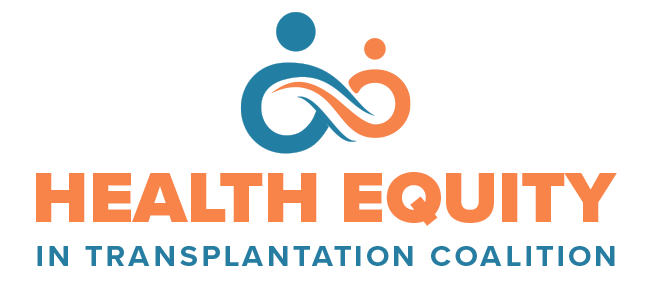FOR IMMEDIATE RELEASE - -
Press Contact:
Rachel Noerdlinger
Transplantee, Leukemia Survivor & Social Justice Leader Jennifer Jones Austin Named Senior Advisor to New Health Equity in Transplantation Coalition
Joins Al B. Sure!, Rev. Al Sharpton, and bipartisan members of Congress in fight to restore Medicare coverage for life-saving blood tests that detect early signs of organ rejection, especially important for Black and Brown communities
Washington, D.C. (November 30, 2023) – Jennifer Jones Austin — a stem cell transplant recipient, national social justice leader and CEO of leading anti-poverty nonprofit Federation of Protestant Welfare Agencies (FPWA) — was today named as a Senior Advisor to the newly formed Healthy Equity in Transplantation Coalition (HETC). She joins Executive Chairman Al B. Sure! and Senior Advisor Rev. Al Sharpton as the coalition opposes Medicare cuts on a life-saving blood test able to catch an organ rejection up to months in advance.
“I know all too well the challenges of finding an emergency organ match. A cord blood transplant saved my life from leukemia in 2010, when I was unable to find a bone marrow match,” said Jennifer Jones Austin, Senior Advisor of the Health Equity in Transplantation Coalition. “The decision to roll back coverage of these lifesaving blood tests will disproportionately impact Black, Hispanic, and Latino Americans, who collectively account for more than 40% of all transplant recipients in this nation. Ensuring equitable post-transplant care access is not just a health equity issue, it’s a racial justice issue.”
"Jennifer and I are both here today thanks to lifesaving transplants, but we both know it’s just step one in a long road to recovery,” said Al B. Sure!, Executive Chairman of the Health Equity in Transplantation Coalition, who received a liver transplant in 2022. “We know too well that constant vigilance is essential every day after a transplant. That’s why we are honored she is standing with the Health Equity in Transplantation Coalition to advocate for fellow patients across the nation.”
"I was there when Jennifer searched high and low for a donor, because inequities in the transplant system stacked the deck against her, only to see her take a leap of faith on a revolutionary procedure,” said Rev. Al Sharpton, Senior Advisor of the Health Equity in Transplantation Coalition. “Every day since has been a struggle for her, as it has for Al B!, to ensure the profound work of their doctors continues to keep them alive and healthy. These cuts have deprived thousands like them from accessing a crucial test able to warn them of a threat months in advance, and must be restored as soon as possible.”
In March, a private contractor with the Centers for Medicare and Medicaid Services (CMS) made a sudden, shocking decision that coverage would now be tied to an invasive, risky surgical biopsy. For the first time in six years, some 140,000 Medicare recipients would no longer be able to access this non-invasive blood test, which was able to be conducted at home and on a regular basis.
These new limits on vital organ transplant care will especially impact Black, Hispanic and Latino Americans, who together represent over 40% of transplant recipients in the U.S. Already disproportionately affected by the country’s massive organ shortage, minority communities often struggle to make it onto a donor list, spend more time on it, and are at higher risk of failure.
Jones Austin experienced this struggle in 2009 when, in desperate need of a bone marrow transplant to fight her leukemia, her chances for finding a match as a Black woman were significantly less than that of a white woman, even among a donor list of 8 million. Her husband, Shawn Austin, organized over 200 bone marrow drives nationwide, which led to an additional 13,000 people — 80% of them from ethnic minorities — added to the Be the Match registry.
While these efforts yielded matches for other patients on the waitlist, her life was ultimately saved through umbilical cord blood from two newborn Black boys. At the time, this still-revolutionary procedure had been conducted less than 30,000 times. Yet Jones Austin’s transplant was just step one in a long road to recovery, as organ rejection remains a daily threat. Cord blood stem cell transplants have a higher tolerance for genetic mismatch, and the blood is already stored and ready to use after a baby is born. In addition to her work advocating for anti-poverty policies and racial justice initiatives, Jones Austin has dedicated herself to raising awareness about bone marrow and umbilical cord donation to help others in the Black community.
Physicians, national medical associations, and transplant patients around the U.S. have written to MolDx to express their concern for vulnerable Medicare populations and call for reconsideration of the change in policy. In August and October, similar concerns were mounted by a group of 14 members of the House of Representatives, led by Reps. Anna Eschoo (D-CA) and Dr. Michael Burgess (R-TX). Former Republican Speaker Newt Gingrich has also called for restoration of Medicare coverage for these surveillance blood tests.
###

